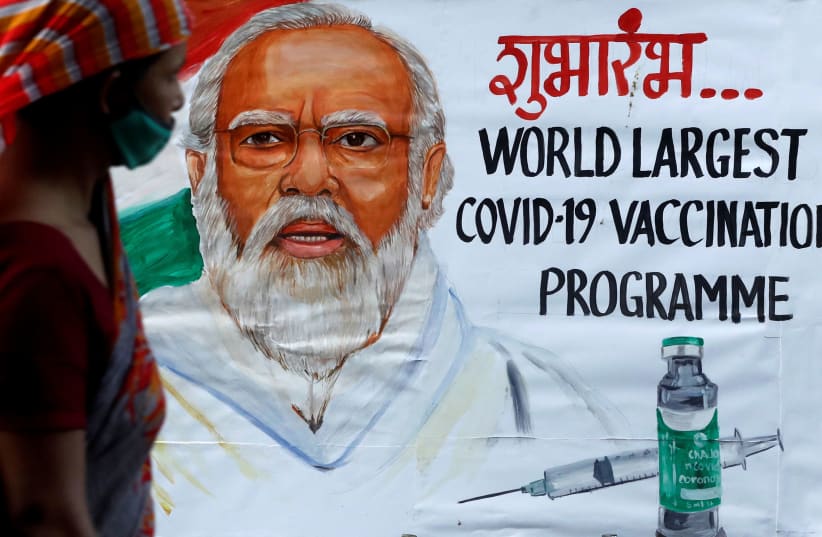This is not surprising, as vaccine manufacturing has often been dominated by India. Even before the COVID-19 pandemic, around 60% of the world's vaccines were made in India, CNBC reported.
As cited by a report from JPMorgan analysts in January viewed by CNBC, “India has been a manufacturing hub for vaccines… even before the pandemic, and should therefore be a strategic partner in the global inoculation against COVID-19.”
And India is already catching up. According to PS Easwaran, a partner at the Indian branch of the consulting firm Deloitte, the country has the capacity to make 3.5 billion COVID-19 vaccines in 2021, with the US able to make 4 billion.
Indian companies are aware of this, and are currently scaling up their production.
“We are expanding our annualized capacities to deliver 700 million doses of our intramuscular COVAXIN,” said Indian firm Bharat Biotech, which developed a COVID-19 vaccine together with the state-run Indian Council of Medical Research, CNBC reported.
Bharat Biotech is one of a few Indian companies creating a vaccine, though others are collaborating with global companies.
India has already pledged to supply vaccines to several other countries, including Cambodia, Mongolia, Afghanistan and various Pacific Island states. But this itself also has political motives.
Seeking to steal a march over rival Asian giant China, which has also promised to deliver vaccines, Prime Minister Narendra Modi’s government has been giving nearby countries millions of doses of the British-made AstraZeneca PLC vaccine, even as its domestic immunization program has just begun.
Modi is using India’s strength as the world’s biggest maker of vaccines for various diseases to improve regional ties and push back against China’s political and economic dominance.
New Delhi has approved 100,000 doses for Cambodia on an urgent basis following a request to Modi from Cambodian Prime Minister Hun Sen, New Delhi's envoy to Phnom Penh said.
Cambodia is an important ally of China, which is expected to provide a million doses of COVID-19 vaccines, mainly developed by state company Sinopharm.
“The supply has been assured through the Serum Institute of India despite innumerable competing requests from partner countries and our commitment to our domestic population,” said Ambassador Devyani Khobragade.
India has given doses to Myanmar, Bangladesh, Nepal, Sri Lanka and the Maldives to help them get started with frontline workers as part of its Vaccine Friendship initiative.
On Sunday, it sent 500,000 doses of the AstraZeneca vaccine to Afghanistan, the first to arrive in the war-ravaged country, which is still waiting for emergency approval from the World Health Organization to administer them.
India has invested millions of dollars in Afghanistan over the years in an expansive effort seen as pushing back against arch rival Pakistan’s influence in the country. “The vaccines are being provided on a grant basis,” a government source said.
So far, India has supplied 15.6 million doses of the vaccine to 17 countries either through donations or commercial contracts, said foreign ministry spokesman Anurag Srivastava.
Consignments will be sent to Mongolia, Caribbean countries and Pacific Island states in the coming weeks, he said. “External supplies are an ongoing process, depending on availability and domestic requirement,” he said.
India, which has the world’s second-highest caseload of coronavirus, plans to immunize 300 million people by August. It vaccinated about three million healthcare workers in the first two weeks of the campaign that began on January 16 and will need to step up the pace to meet its summer target.
